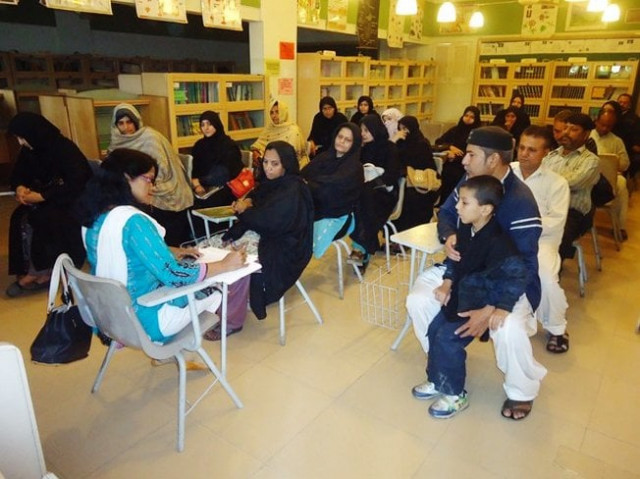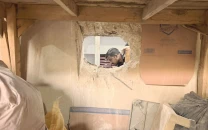For informed choices: ITA launches programme to assess schools’ quality
It will gather information to help parents decide which school to send their children to.

A school assessor takes feedback from parents of students. PHOTO: ITA
To address the bleak situation, the Idara-e-Taleem-o-Agahi and ILM Ideas have launched the School Assessment for School Improvement (SASI), a novel initiative which aims to become a rigorous evaluation and monitoring mechanism for low-cost schools. The project was formally launched on Friday following the completion of the SASI pilot programme at 25 schools across Lahore and Karachi. Elaborating on the project, ITA director programmes Baela Raza Jamil said that it would dramatically alter the way things are done in the education sector.
“The existing educational landscape can be best described as an active ‘marketplace’ where about 60 per cent of nearly all private schools are low-cost, suggesting an increased access and options available to the low-income groups,” said Jamil while talking to The Express Tribune. “The private education sector makes up one-third of the pie and justifiably so - without them, developing countries would not be able to achieve the Education For All (EFA) targets. Pakistan is no exception.”
Jamil, added, however, that currently only a few big schools have an internal evaluation and assessment scheme in place and there is a dire need to learn more about the quality of teaching across the education spectrum. “The government-run assessment system is primarily based on [students’ performance in] annual examinations. There is little focus on the teaching quality and learning environment, especially in low-cost schools.”

She explained that SASI aims to provide parents with enough information to allow them to make an informed choice when deciding on what schools to send their children to. The programme will also provide schools’ administrations with a rigorous assessment. “The assessment report will give an excellent quantitative and qualitative analysis about various dimensions of performance, highlighting key areas such as governance as well as financial and academic performance,” she said. “With both these measures, the programme intends to create an eco-system where students are considered central to the learning enterprise. This is something that will allow them to thrive and grow.”
SASI programme manager Faizan Zakaria Polani said the project was inspired by Micro-Credit Ratings International Limited’s (M-CRIL) rating system designed for affordable private schools in Hyderabad, India. “The project would not have been possible without their technical assistance in designing the assessment framework and their valuable critique on our work.” The programmes are different in that while M-CRIL ranks schools, SASI provides assessment. Polani, did not, however, rule out the possibility of ranking schools. “The assessment provided the ITA with vital baseline data to create benchmarks for a school rating system in the future.” Outlining his expansion plans, Polani said that SASI can be used to provide third-party evaluation to public schools in collaboration with the provincial governments. Sindh Education Foundation managing director Anita Ghulam Ali, who was the chief guest on the occasion, commended the efforts of SASI in identifying the shortcomings in the quality of teaching at low cost schools and helping these schools to overcome them.
Published in The Express Tribune, June 15th, 2013.



















COMMENTS
Comments are moderated and generally will be posted if they are on-topic and not abusive.
For more information, please see our Comments FAQ